Bimaculatus Anthias
$64.99
-
Select Variant
The Bimaculatus Anthias is also known as the Twospot or Twinspot Anthias. Males are spotted with at least two or three spots in their dorsal fins, with a head of pink which fades into a bright red that extends to the tail. Intriguing pink bars stretch across the body horizontally and make this fish among the prettiest of Anthias. Females of this species are pink, with yellow dorsal, anterior and caudal fins. The unique Anthias are stunning fish to be used in the only fish invertebrate aquariums, or reef aquariums.
It is believed that the Bimaculatus Anthias does best when kept in the same species in a tank that is at minimum one hundred and fifty-five gallon. A marine species the Anthias is found within tanks however, it appreciates having various hiding places.
Anthias species are all hermaphrodites. If the dominant male dies the biggest female in the group is likely to change to replace it.
<p><p>
After set
tling into a newly installed aquarium Anthias are best provided with a diverse diet consisting of mysis shrimp frozen, enhanced brine shrimp frozen in brine and eventually, they could eat quality flake food that are available in small amounts throughout the daytime. A refugium that is attached to the tank and cultivates amphipods and copepods will provide an ongoing supply of healthy fresh food that is sure to maintain the active planktivore levels.</p>
Appro
ximate Purchase Size: Small: 1-1/2" to 2"; Small/Medium: 2" to 2-3/4"; Medium: 2-3/4" to 3-1/4"; Medium/Large: 3-1/4" to 4"; Large: 4" to 5"
- Description
- Additional Information
- Reviews
General Information on Bimaculatus Anthias
The Bimaculatus Anthias, also known as the Twospot or Twinspot Anthias, is a striking fish that enhances the beauty of any aquarium. Males of this species are particularly eye-catching, featuring one or two spots on their dorsal fins and a pink head that transitions into a vibrant red towards the tail. Their body is adorned with irregular pink bars arranged horizontally, making them one of the most attractive Anthias. Females are less vivid but are still notable for their pink bodies and yellow dorsal, anal, and caudal fins.Tank Requirements for Bimaculatus Anthias
- Tank Size: Bimaculatus' thrive in large aquariums, ideally 125 gallons or more.
- Tank Setup: They prefer the middle of the tank and benefit from numerous hiding places. Use live rock to create a habitat with plenty of caves and nooks.
- Tankmates: Best kept in species-specific tanks or with other peaceful fish. Avoid aggressive or overly active tankmates.
Behavior and Care of Bimaculatus'
- Behavior: The Bimaculatus' is known for its active and peaceful nature. It makes a beautiful addition to fish-only, invertebrate, or reef aquariums.
- Hermaphroditism: Like other Anthias, the Bimaculatus Anthias is hermaphroditic. If the dominant male dies, the largest female in the group can change to fill its role.
Feeding Bimaculatus Anthias
- Diet: Feed the Bimaculatus' a varied diet including frozen mysis shrimp, enriched frozen brine shrimp, and high-quality flake foods. Offer food in small amounts throughout the day.
- Special Consideration: An attached refugium cultivating copepods and amphipods can provide a steady source of nutritious live food.
Summary of Bimaculatus' Care
The Bimaculatus Anthias is an eye-catching fish that does well in large tanks with plenty of hiding spots. They are relatively easy to care for, provided they have a proper diet and a well-maintained tank. Their hermaphroditic nature ensures stable social dynamics even if the dominant male is lost.- Approximate Purchase Size: Small: 1" to 1-3/4"
LINKS to follow:
size
Large, Medium, Small
Units
1
Weight
6 lbs
Dimensions
1 × 1 × 1 in

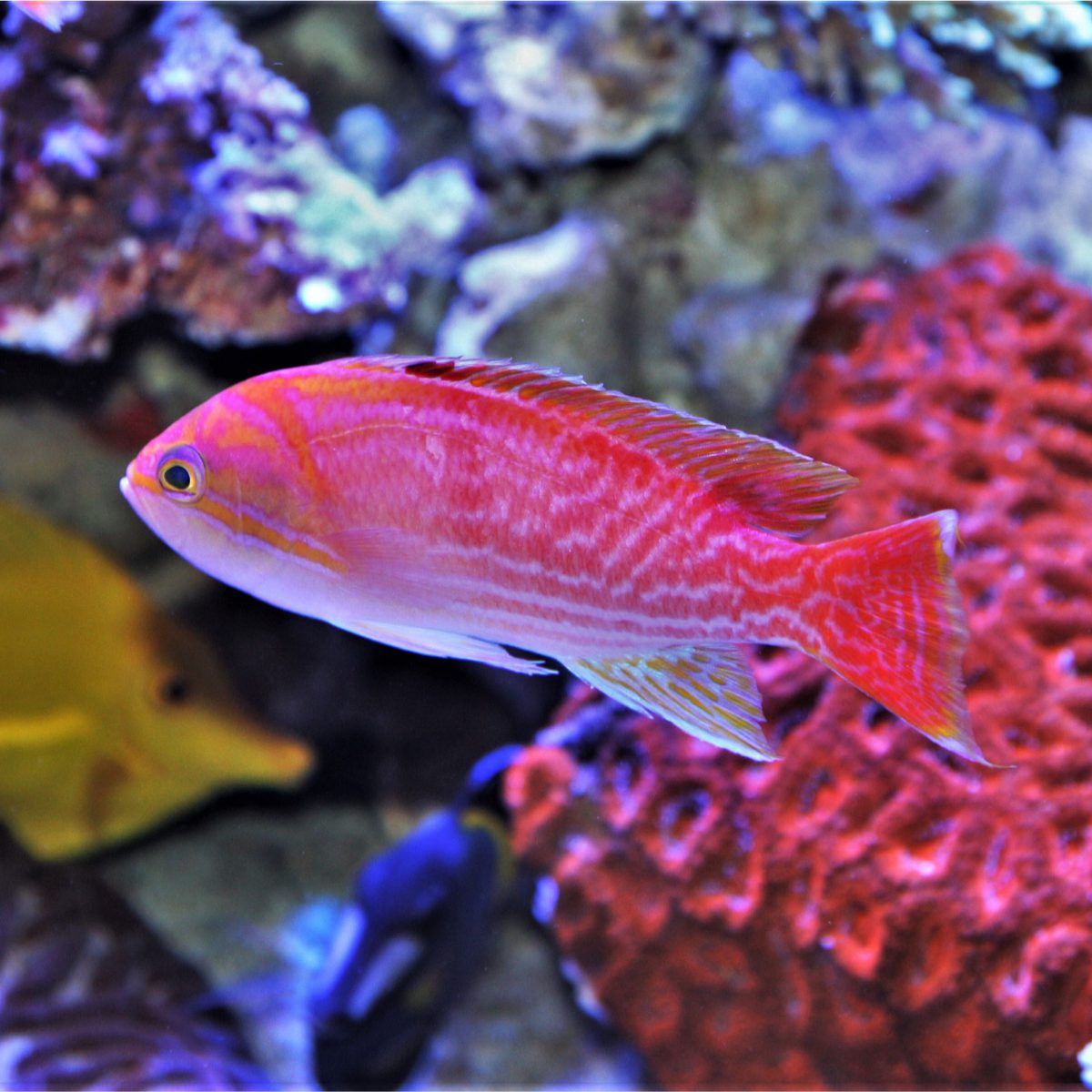
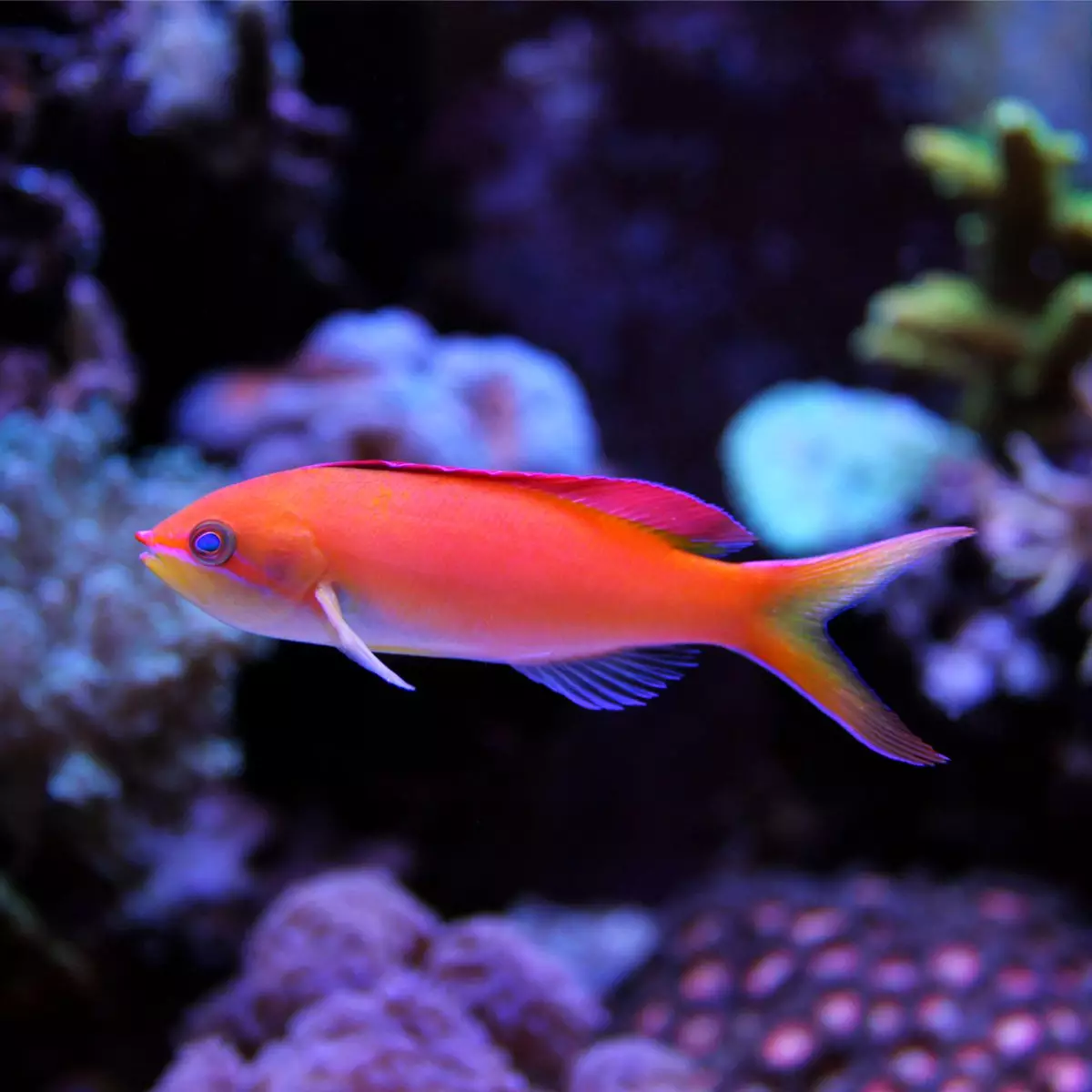
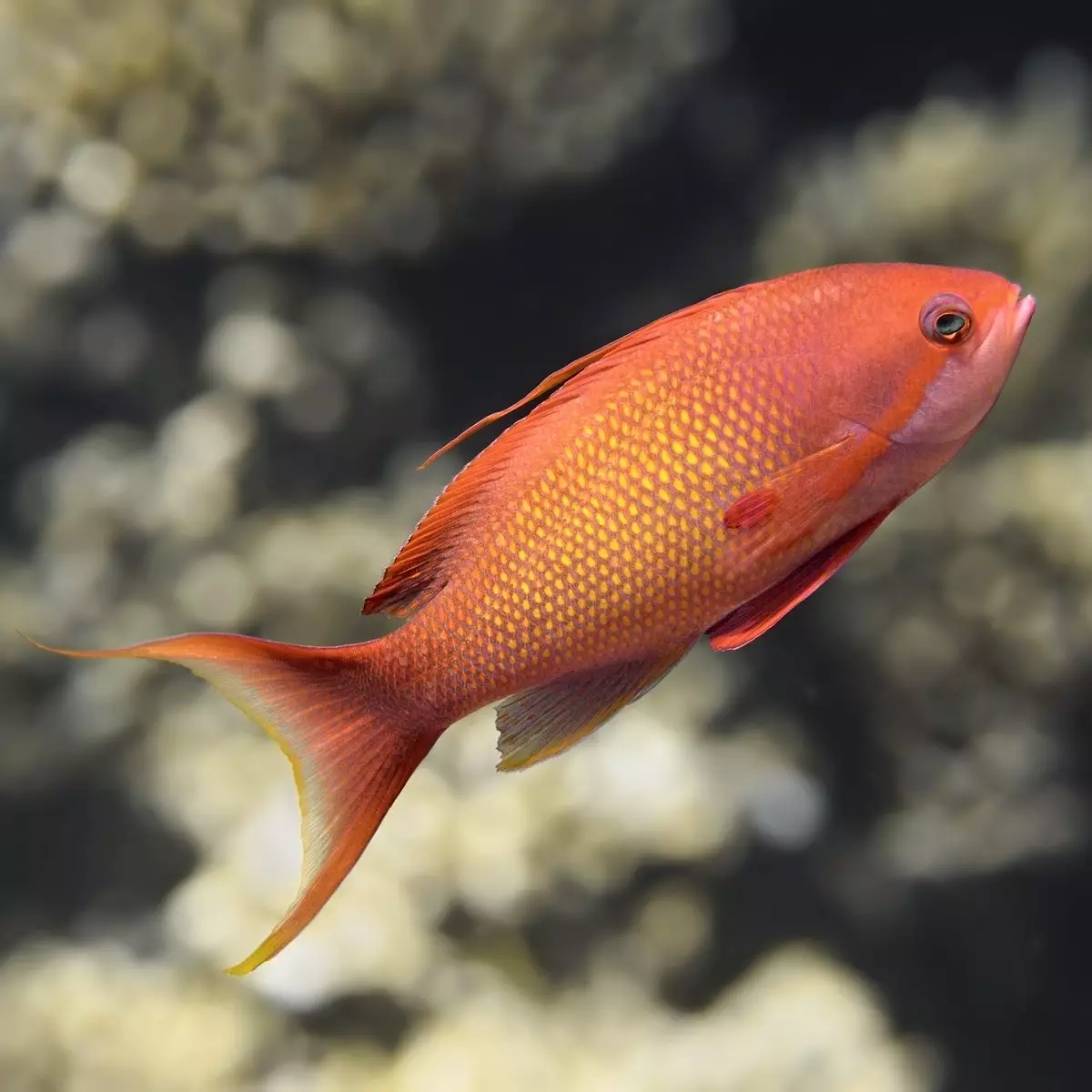
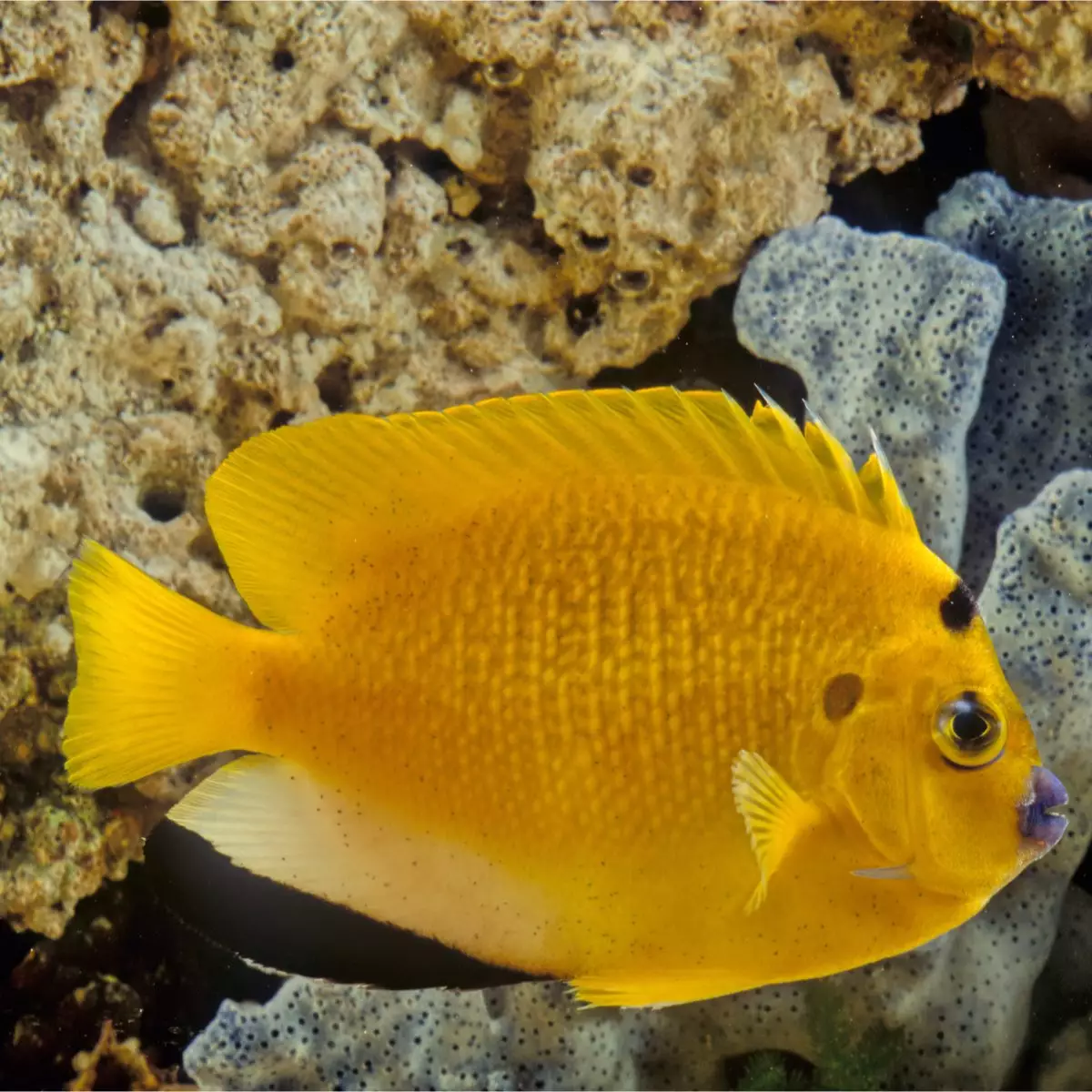
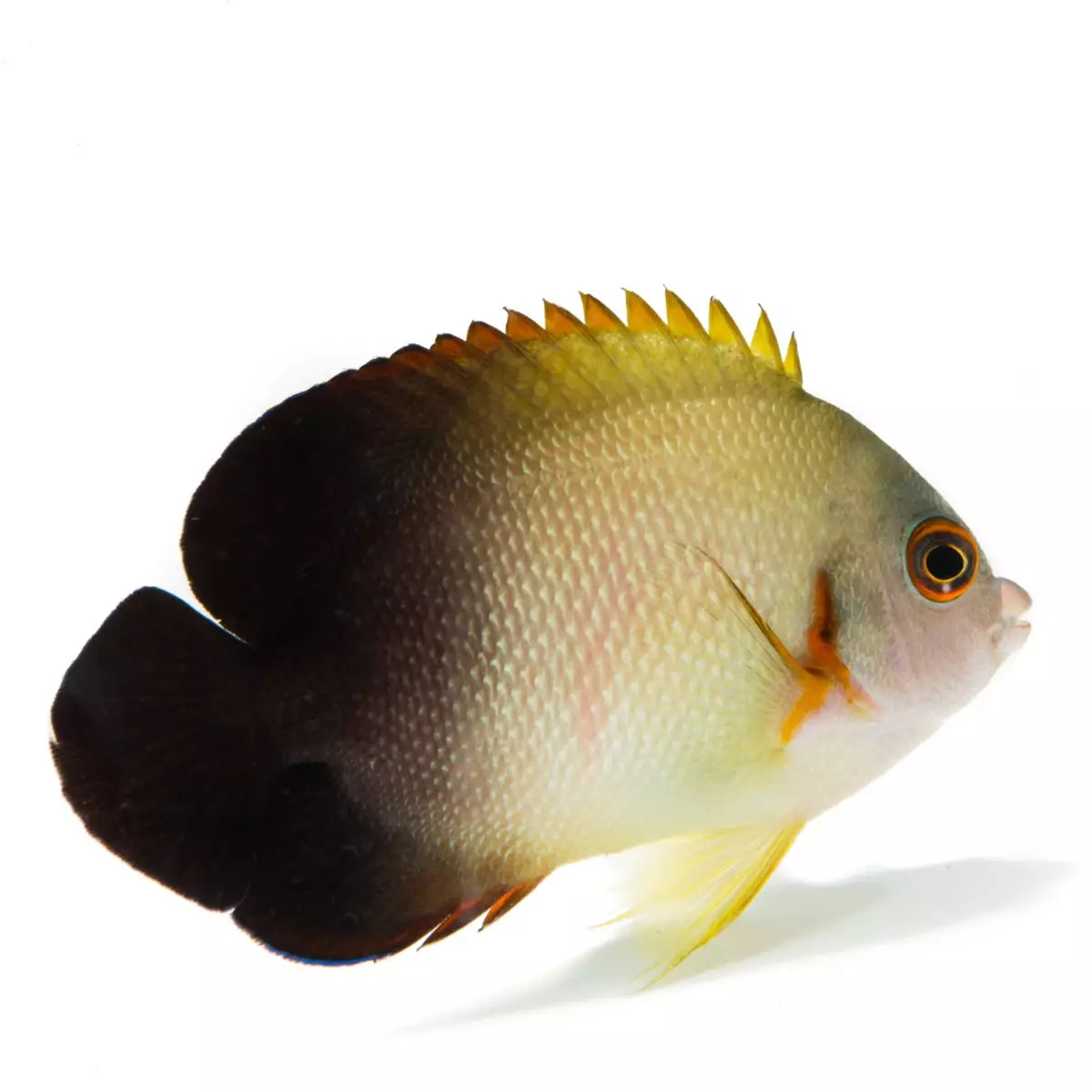
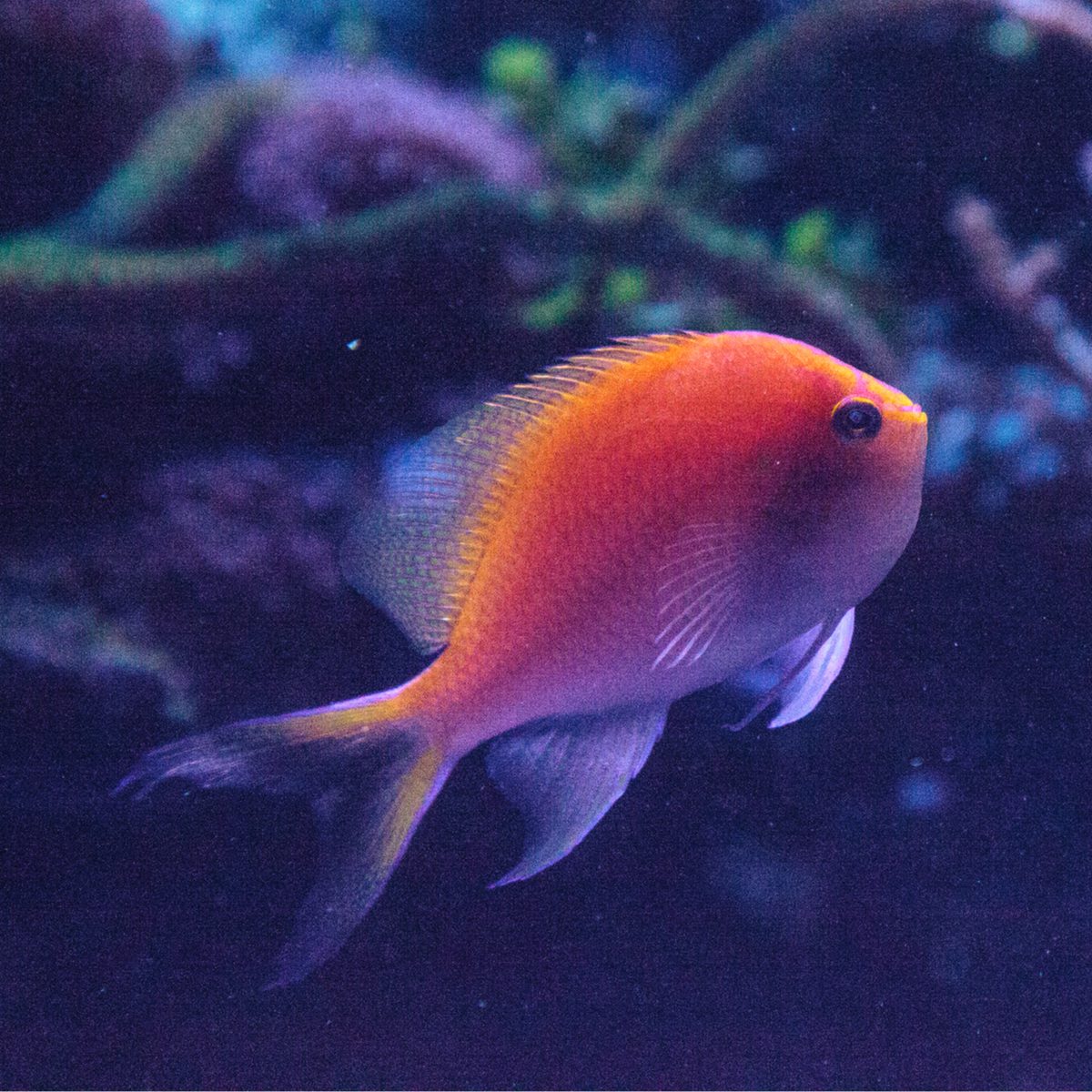
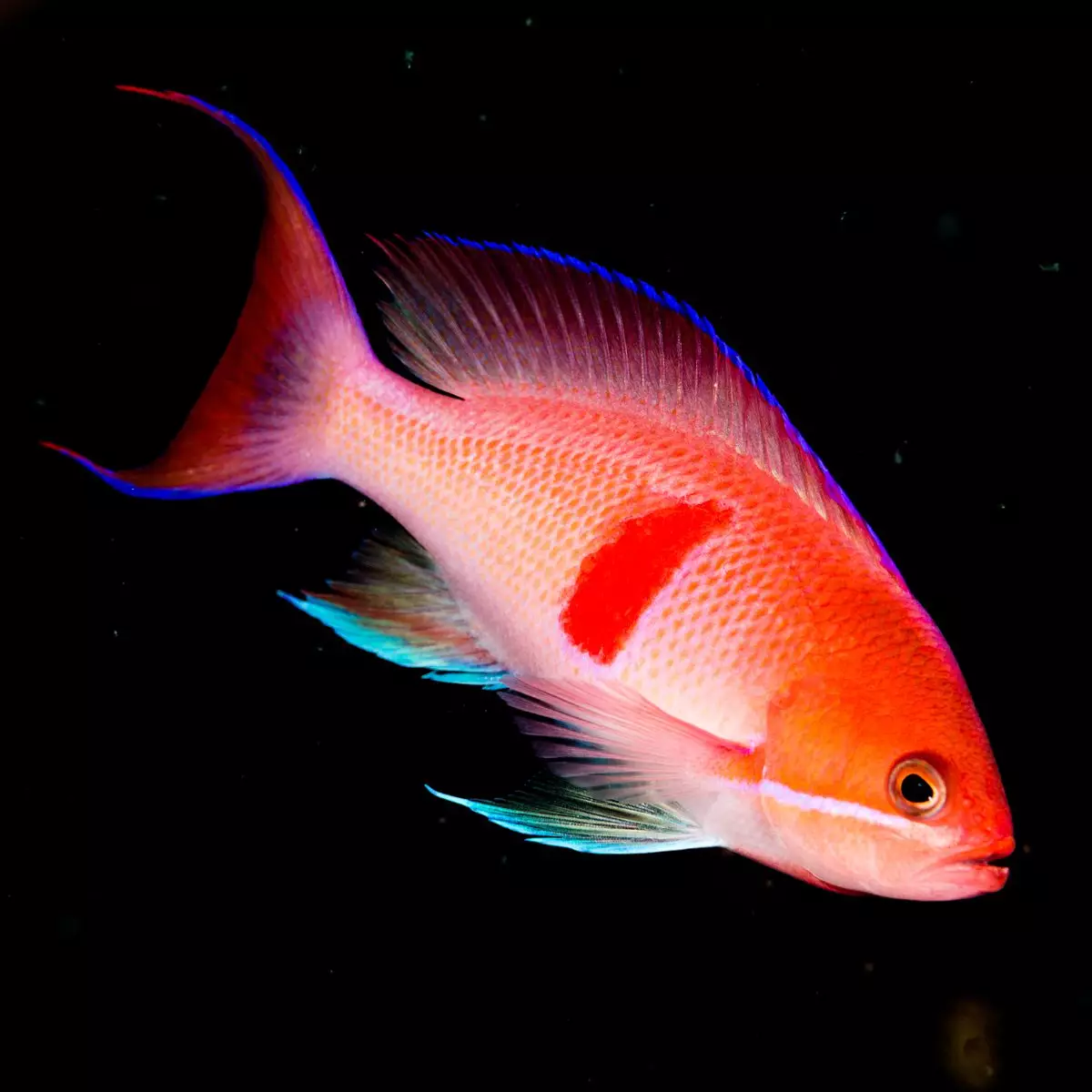
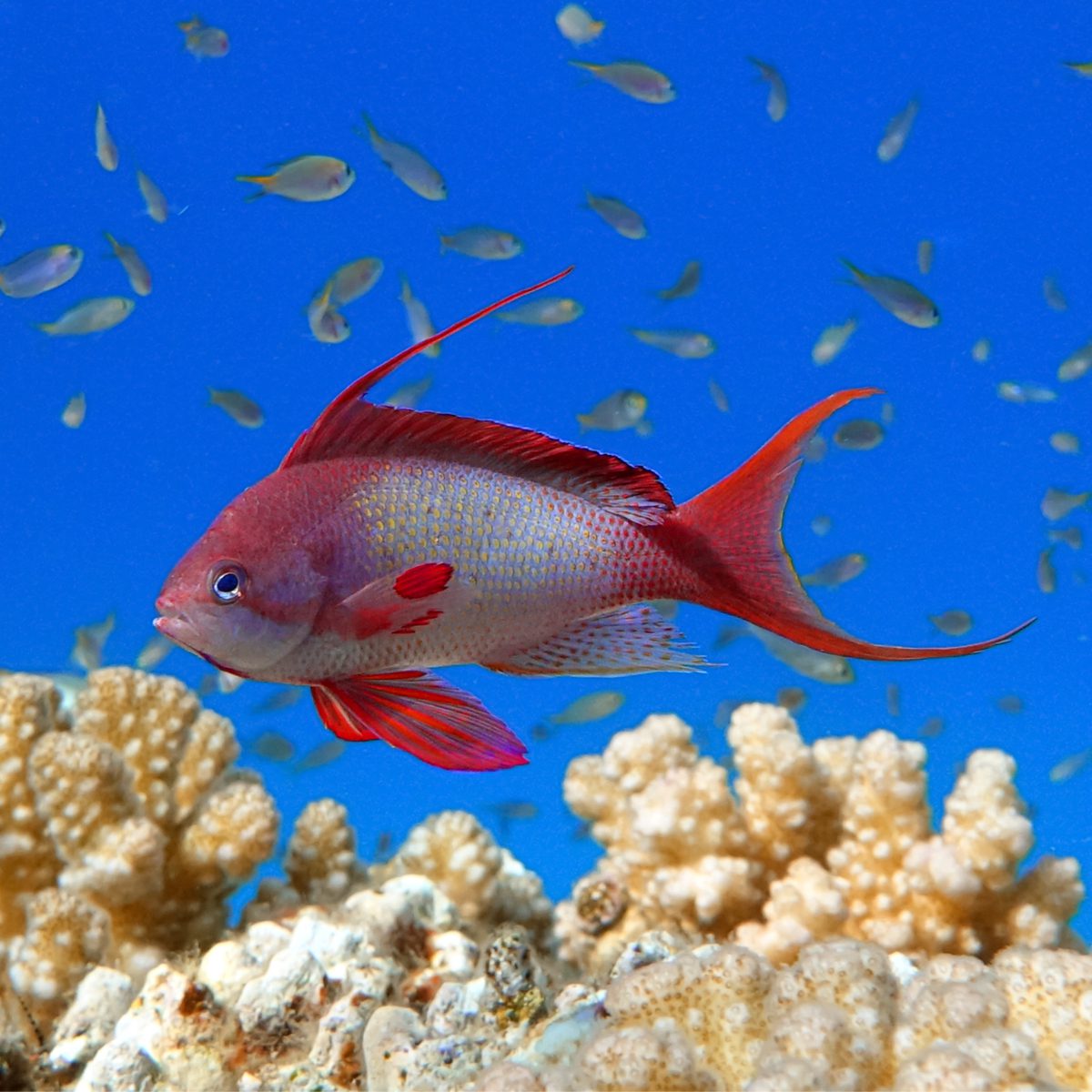
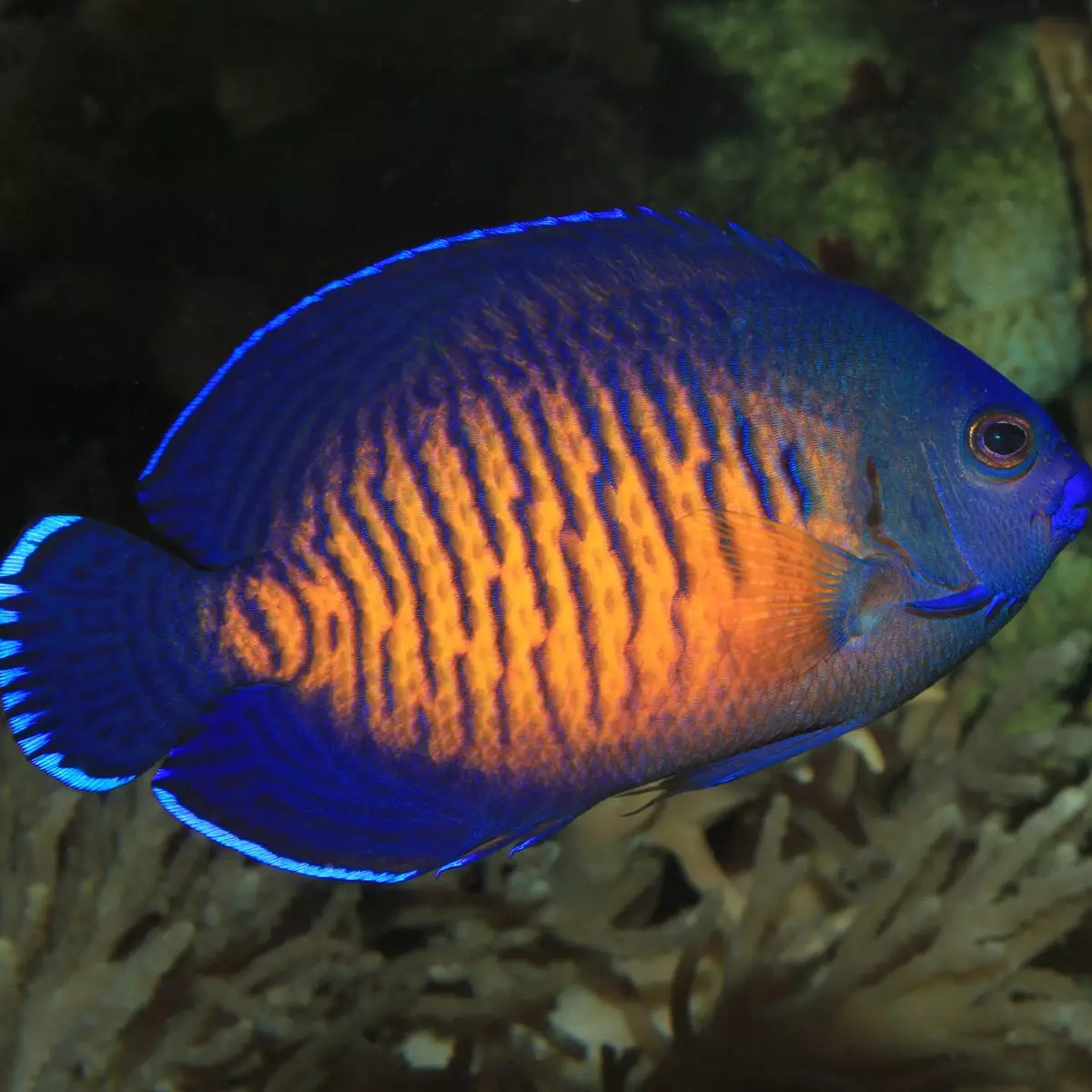
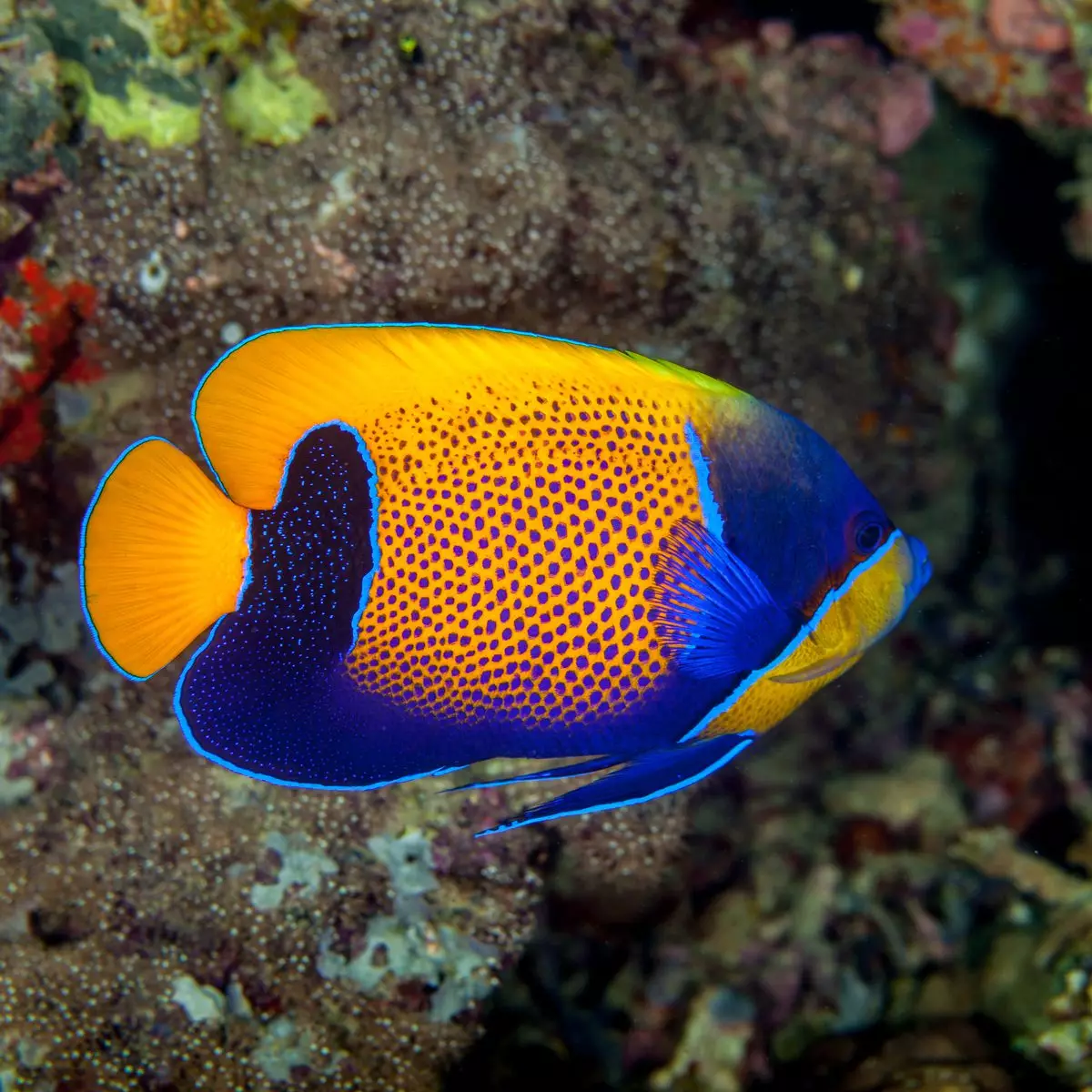
Reviews
There are no reviews yet.